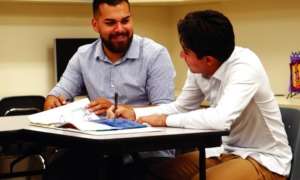A report commissioned by a coalition of for-profit schools challenges the findings of the Government Accountability Office’s report that found alleged fraud and deception in recruiting, financial aid advice and graduation rates by 15 for-profit colleges.
“We question their methodology, the accuracy of their reporting and their knowledge of the difference between the academic year and the calendar year,” said Jean Norris, a managing partner of the firm Norton/Norris, which prepared the report at the behest of the Coalition for Educational Success.
The coalition sees the GAO report as a driving force for plans by the Department of Education to impose a “gainful employment” standard on colleges that would limit their access to federal financial aid if their graduates are unable to pay off the large debts they accumulate at the for-profit schools. That rule has not been finalized, having been twice delayed by the department. Experts predict that the rules will have a negative effect on many for-profits.
Norris and Vince Norton, the firm’s other managing partner, reviewed more than 36 hours of audio tape – available on the website of the Senate Health, Education, Labor and Pension Committee – of GAO undercover agents’ visits to the 15 colleges. The partners said they could only “confirm” 14 of what it said were 65 “findings” by the GAO.
Tapes were not available for what the Norton/Norris report identified as 14 other findings. A source familiar with the investigation said those tapes have been handed over for possible Department of Education or Department of Justice action. Norton/Norris did not have access to any of the more than 100 hours of videotape that GAO agents accumulated.
For many of the “findings,” the Norton/Norris report:
- Found that the statements deemed erroneous or misleading by the GAO were uttered, but they said the quotations were taken out of context of the entire conversation,
- Blamed a misunderstanding by the investigators of the difference between the academic year and the calendar year or
- Said was an instance of a school representative using bad judgment in making a reply, rather than deliberately being misleading.
They disputed that many of the so-called “findings” rose to that level and should have been simply noted.
The Government Accountability Office, which reissued the report on Nov. 30 after making revisions, has said the changes did not affect its conclusions and issued a statement saying it stood by its report.
The Norton/Norris report lays much of the blame on the GAO’s use of agents posing as students rather than trained mystery shoppers who would follow strict protocols in seeking information. Norton/Norris suggested that GAO should have used the same tester at each location who could have asked the questions in the exact same way.
Norton/Norris, based in Chicago, frequently does mystery shopping for both nonprofit and for-profit colleges.
The report also claims that what the GAO investigators found misleading – especially when they were told it would take two years to complete a program but were then given cost information for a longer period – arose from the agents’ unfamiliarity with the fact that for-profit colleges generally run year-round, as opposed to the typical nine-month academic year used by other higher education institutions. Length of study was frequently quoted to the agents in calendar years while costs were given in academic years.
It said there was similar confusion over what the agents saw as an unwillingness of admissions officers of the for-profit colleges to allow them to speak to a financial aid specialist, noting that is the way it should be done under the code of ethics of the National Association of College Admissions Counseling.
The reports concludes that in many of the instances in which the agents had asked directly for graduation rates, there were no direct questions, but questions such as “Does everyone graduate?”
The Coalition for Educational Success is a group of for-profit colleges that is spearheaded by Willis Stein & Partners, a private equity firm that is a major shareholder of the Education Corporation of America, which owns Virginia College and Ecotech Institute.
Noah Black, a spokesman for the coalition, said it is still trying to get all audio and videotapes that were recorded during the GAO investigation.






























